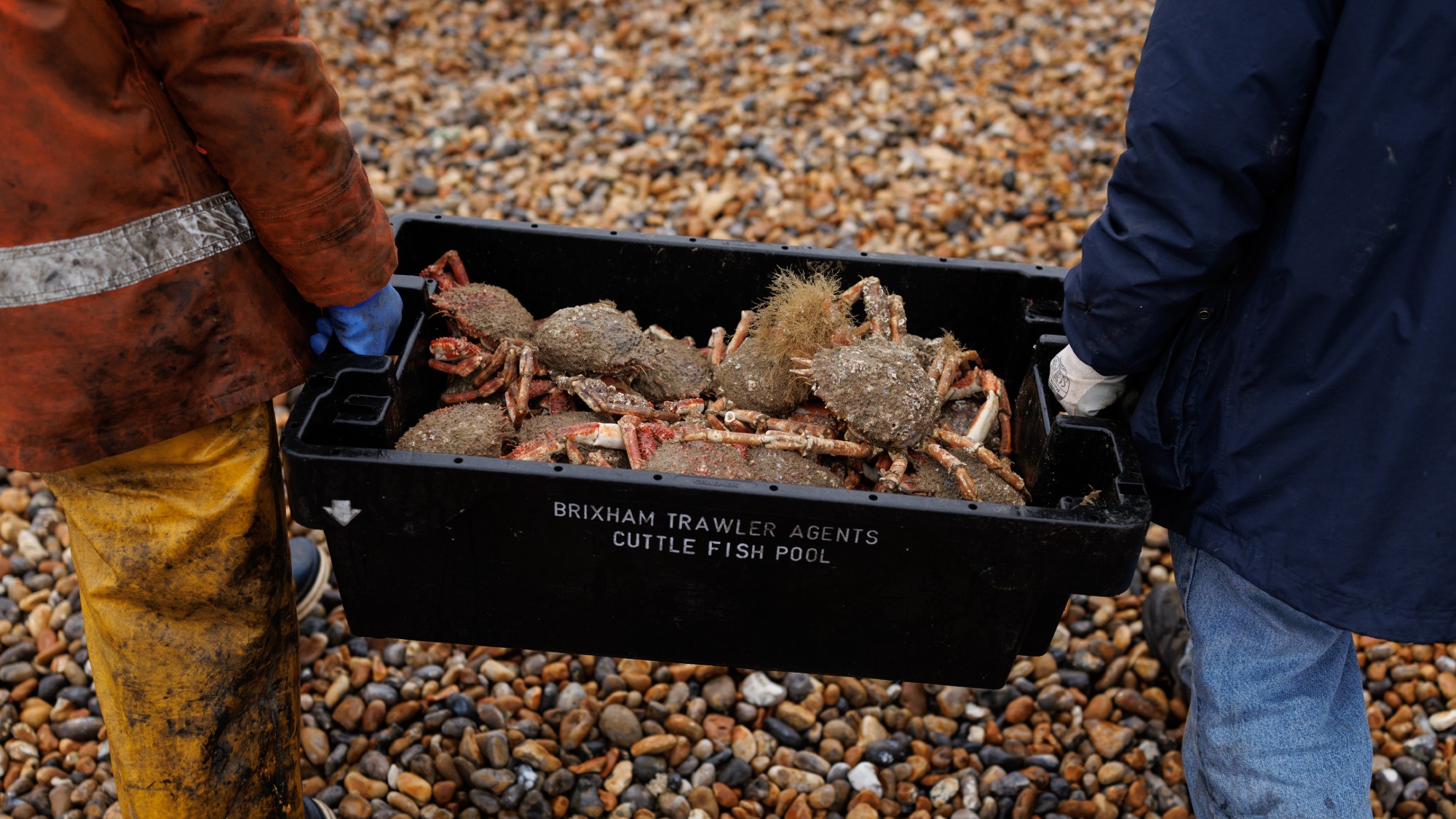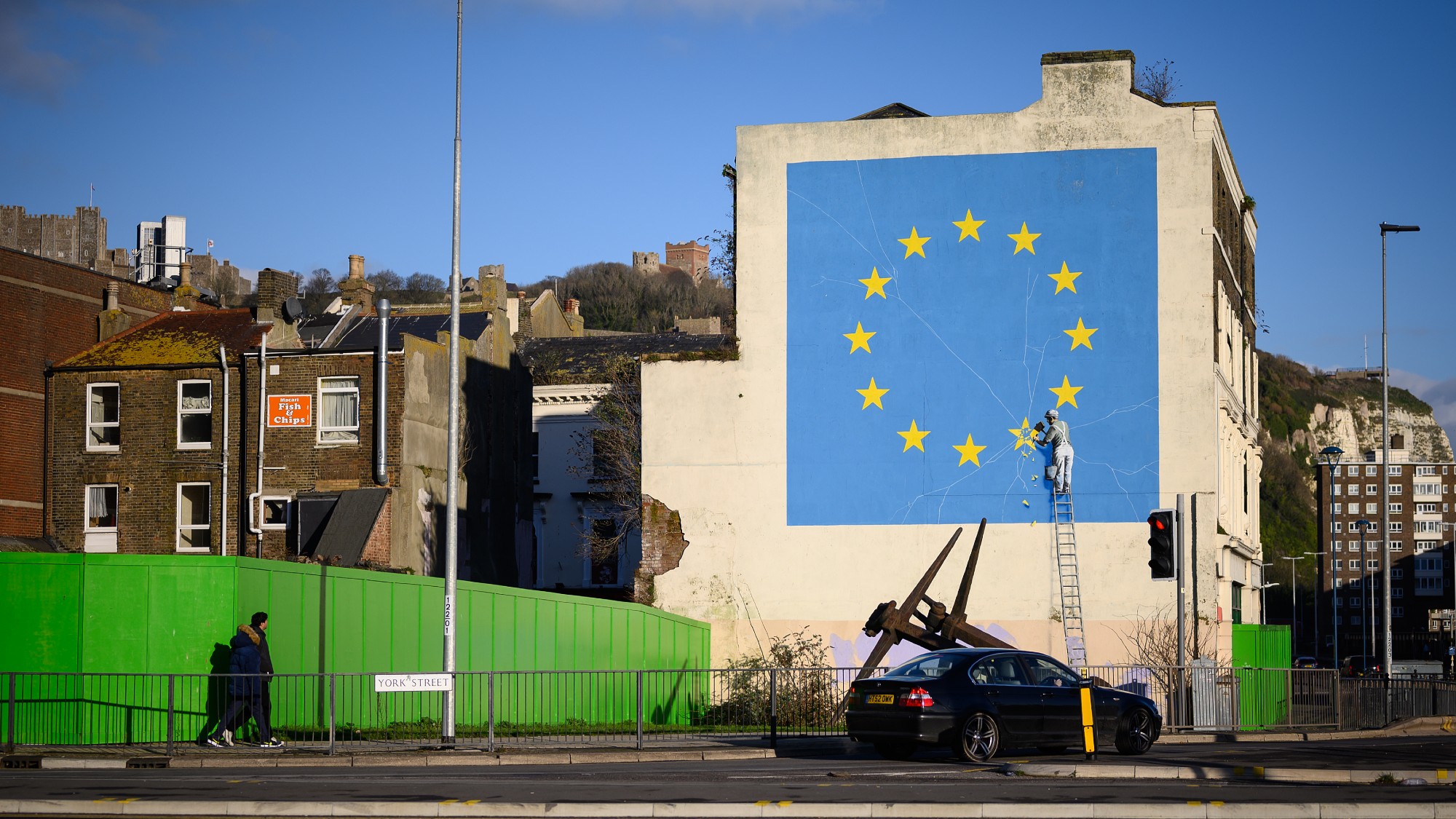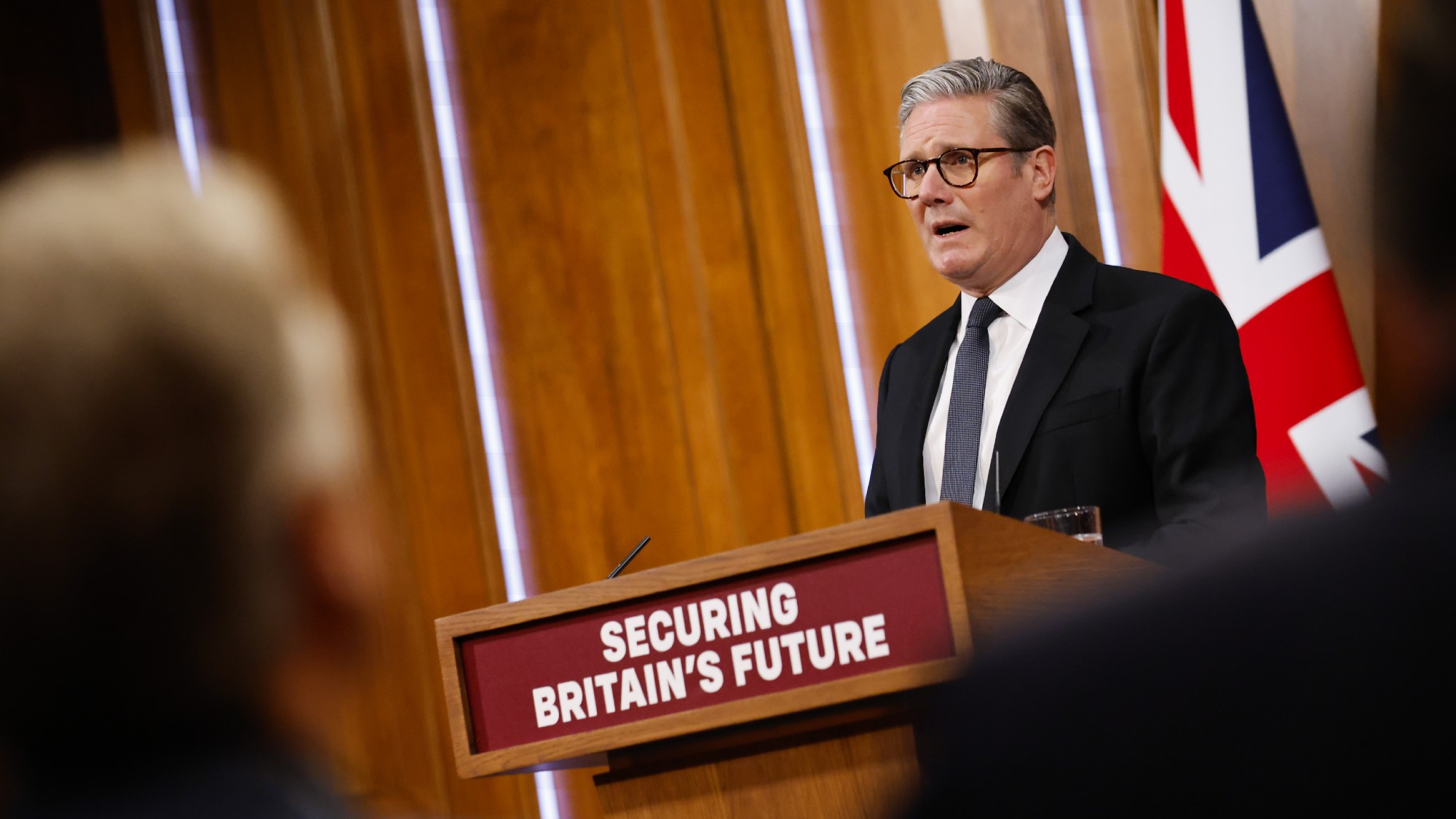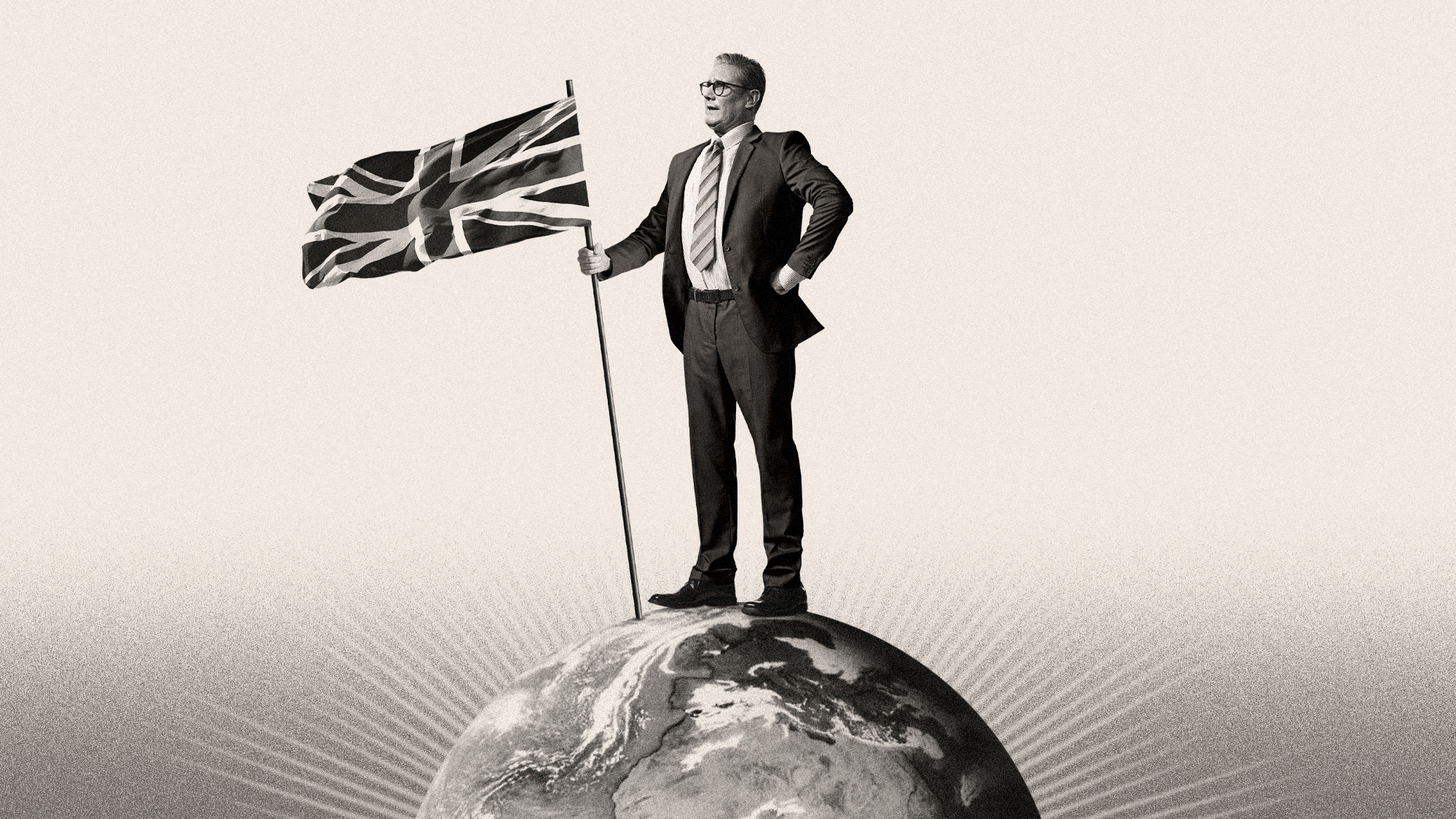What will a new Brexit agreement mean for Northern Ireland?
Everything you need to know about the tentative deal


A free daily email with the biggest news stories of the day – and the best features from TheWeek.com
You are now subscribed
Your newsletter sign-up was successful
The Brexit process has taken a new step forward, this time in Northern Ireland. BBC News reports that British Prime Minister Rishi Sunak and European Union leader Ursula von der Leyen on Monday announced an agreement to "fix post-Brexit problems" in Northern Ireland that left the region in a state of limbo following the United Kingdom's exit from the EU. The issue had long complicated relations between the U.K. and Europe, and Reuters reports that officials hope the agreement provides a fresh start for the two. "This is the beginning of a new chapter in our relationship," Sunak said at Monday's news conference. Why was Northern Ireland a point of contention over Brexit? What does the new agreement do? Here's everything you need to know:
What was going on with Northern Ireland and Brexit?
Northern Ireland occupies complicated political and geographic territory in both the United Kingdom and Europe. (This might be an understatement.) It is part of the United Kingdom — unlike Ireland, right next door, which is an independent and sovereign nation. Ireland is part of the European Union while the U.K. — after Brexit — is not, but Ireland and Northern Ireland share one big island as well as a long and troubled history. And after Brexit, the idea of putting up a hard customs border between Ireland and the EU on one side and Northern Ireland and the U.K. on the other proved to be knotty. As the BBC reports, officials were leery during Brexit of putting up "cameras or border posts" between Northern Ireland and Ireland for fear it would damage the 1990s-era "Good Friday" peace agreement that ended decades of violence in Northern Ireland and which had demilitarized the border between Northern Ireland and Ireland. But of course, the whole point of Brexit was to re-establish a hard border between the U.K. and the rest of Europe.
So what was the Northern Ireland protocol?
At its most basic, it means that when the United Kingdom left the European Union, Northern Ireland kinda-sorta stayed in the EU while also still remaining part of the U.K., a neither-fish-nor-foul situation that made nobody very happy. "To avoid the need for a hard border with Ireland and to prevent goods flowing unchecked into the EU's single market, former prime minister Boris Johnson agreed to effectively leave Northern Ireland within the EU's single market for goods," Reuters explains. That meant that there was "effectively" a customs border between Great Britain and Northern Ireland — and that border worked both ways, The Guardian notes: "Products arriving into Northern Ireland from the rest of the U.K. are subject to checks and controls." It's as if there were a customs border between Texas and the rest of the United States.
The Week
Escape your echo chamber. Get the facts behind the news, plus analysis from multiple perspectives.

Sign up for The Week's Free Newsletters
From our morning news briefing to a weekly Good News Newsletter, get the best of The Week delivered directly to your inbox.
From our morning news briefing to a weekly Good News Newsletter, get the best of The Week delivered directly to your inbox.
So why is it being changed?
The Washington Post reports that unionists in Northern Ireland — the folks who like being part of the U.K. instead of reuniting with Ireland — felt the protocol "undermines Northern Ireland's place within the U.K." (And indeed, the Democratic Unionist Party has refused to participate in Northern Ireland's government until its concerns are addressed, leaving the region with neither an executive nor a legislative assembly.) Businesses in Great Britain didn't like it much either. U.K. Prime Minister Rishi Sunak had proposed creating a "green lane" and a "red lane" for those businesses — with the green lane being reserved for "trusted" firms that promised their goods were going only into Northern Ireland and not across the border into Ireland and the EU.
What is actually changing, then?
As our British counterparts at The Week U.K. report, the "green lane" system is indeed part of the agreement. And they quote Sky News reporting that "British products such as trees, plants and seed potatoes will be available in [Northern Ireland] and pet travel requirements have been removed." But the centerpiece provision is something called the "Stormont brake" — which the BBC reports gives the Northern Ireland Assembly the "ability to pull an 'emergency brake' if it disagrees with an EU goods law which 'would have significant, and lasting effects on everyday lives.'" That means the U.K. government could potentially veto EU laws in Northern Ireland, though "it's unclear what would happen" if the veto is exercised, and von der Layden stressed her hope the provision would never be used. The U.K. government's summary of the agreement can be found here.
What's next?
The New York Times reports the hope is that the agreement "could avert a potential trade war between Britain and the European Union and open the door to the restoration of Northern Ireland's government." But there are a few steps to take along the way. The U.K. Parliament will have to approve the deal, but it's not clear that Sunak's allies in the Conservative Party will back his play. Politico reports that the Labor Party is ready to support Sunak's agreement, "although an outcome that sees him rely on opposition support would be politically toxic for the U.K. prime minister." That may not be a problem: BBC's Nicholas Watt tweets that Tory MPs are "encouraged" by the deal. Meanwhile, the Democratic Unionist Party is expected to gather in the coming days to consider its response. If all goes well, the U.K. government document suggests that various parts of the agreement will be phased in over the next two years, give or take. For the moment, the future of Northern Ireland is still up for grabs.
A free daily email with the biggest news stories of the day – and the best features from TheWeek.com
Joel Mathis is a writer with 30 years of newspaper and online journalism experience. His work also regularly appears in National Geographic and The Kansas City Star. His awards include best online commentary at the Online News Association and (twice) at the City and Regional Magazine Association.
-
 5 cinematic cartoons about Bezos betting big on 'Melania'
5 cinematic cartoons about Bezos betting big on 'Melania'Cartoons Artists take on a girlboss, a fetching newspaper, and more
-
 The fall of the generals: China’s military purge
The fall of the generals: China’s military purgeIn the Spotlight Xi Jinping’s extraordinary removal of senior general proves that no-one is safe from anti-corruption drive that has investigated millions
-
 Why the Gorton and Denton by-election is a ‘Frankenstein’s monster’
Why the Gorton and Denton by-election is a ‘Frankenstein’s monster’Talking Point Reform and the Greens have the Labour seat in their sights, but the constituency’s complex demographics make messaging tricky
-
 Biggest political break-ups and make-ups of 2025
Biggest political break-ups and make-ups of 2025The Explainer From Trump and Musk to the UK and the EU, Christmas wouldn’t be Christmas without a round-up of the year’s relationship drama
-
 ‘The menu’s other highlights smack of the surreal’
‘The menu’s other highlights smack of the surreal’Instant Opinion Opinion, comment and editorials of the day
-
 Is Britain turning into ‘Trump’s America’?
Is Britain turning into ‘Trump’s America’?Today’s Big Question Direction of UK politics reflects influence and funding from across the pond
-
 Entente cordiale: will state visit help UK-French relations get over Brexit?
Entente cordiale: will state visit help UK-French relations get over Brexit?Today's Big Question The King, a keen Francophile who has a warm relationship with Emmanuel Macron, will play a key role in state visit
-
 Brexit 'reset' deal: how will it work?
Brexit 'reset' deal: how will it work?In Depth Keir Stamer says the deal is a 'win-win', but he faces claims that he has 'surrendered' to Brussels on fishing rights
-
 Are we entering the post-Brexit era?
Are we entering the post-Brexit era?Today's Big Question Keir Starmer's 'big bet' with his EU reset deal is that 'nobody really cares' about Brexit any more
-
 Can Starmer sell himself as the 'tough on immigration' PM?
Can Starmer sell himself as the 'tough on immigration' PM?Today's Big Question Former human rights lawyer 'now needs to own the change – not just mouth the slogans' to win over a sceptical public
-
 Has Starmer put Britain back on the world stage?
Has Starmer put Britain back on the world stage?Talking Point UK takes leading role in Europe on Ukraine and Starmer praised as credible 'bridge' with the US under Trump
